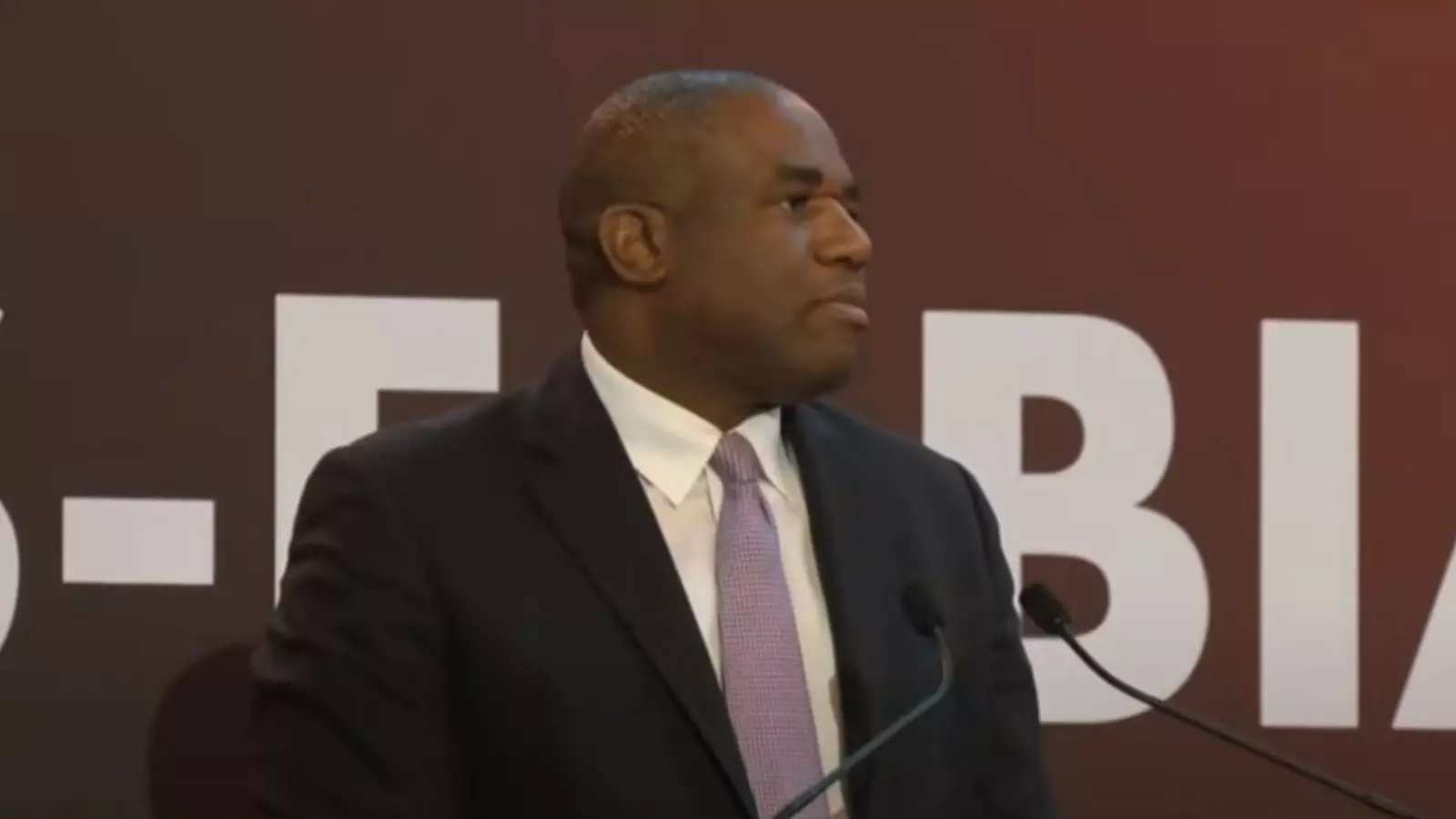Pro-Palestinian protesters recently caused a stir during a speech given by shadow foreign secretary, David Lammy. The incident occurred at the Fabian Society, where Lammy was outlining the Labour Party’s foreign policy in the event of winning the next general election. The activist took issue with the party’s stance on the Israel-Hamas war and interrupted the speech with cries of condemnation and demand for accountability. This disruptive event sparked a heated debate on the stage and provided a platform for examining the party’s foreign policy framework.
As Lammy embarked on his speech, a Palestinian-flag-clad activist stormed the stage, voicing criticisms of Labour’s policy on the Israel-Hamas war. The interruption was met with both surprise and frustration, as the activist’s cries echoed concerns over the ongoing conflict. Although the interruption may have been disruptive, it allowed for a public discussion on the party’s stance and the importance of addressing human rights violations.
Another individual took the opportunity to question Lammy’s socialist credentials amidst the chaos. The activist asked, “Call yourself a socialist?” Lammy, appearing unfazed, replied with a touch of humor, stating that he was born in Tottenham and emphasizing the desire for a sustainable ceasefire in Gaza. This exchange shed light on the complex nature of party politics and how criticisms from within can shape political discourse.
Despite attempts to restore order, more protesters interrupted Lammy’s speech, expressing their disapproval through phrases like “you should be ashamed of yourself” and “blood on your hands”. The repetition of such passionate outbursts further highlighted the urgent need to address the ongoing conflict. It is evident that there are individuals within the wider Labour Party support base who feel that the party’s foreign policy lacks the necessary urgency to resolve the Israel-Hamas war.
Labour leader Sir Keir Starmer initially faced criticism at the start of the conflict for his statement affirming Israel’s right to defend itself without a comparable show of support for the people of Gaza. However, Starmer’s position has since evolved, especially regarding Israeli Prime Minister Benjamin Netanyahu’s recent denouncement of the two-state solution post-conflict. This shows that the party’s foreign policy is open to adaptation and that critical discussions can shape its approach.
Throughout his speech, Lammy repeatedly responded to the disruptions with the phrase, “Change through power not process.” This catchphrase emphasizes the Labour Party’s commitment to effecting change within international relations through diplomatic means, rather than relying solely on established processes. By reiterating this mantra, Lammy attempted to showcase the party’s approach to resolving global conflicts, including the Israel-Hamas war.
The disruption of David Lammy’s speech not only highlighted the growing concerns surrounding the Labour Party’s foreign policy but also sparked a broader conversation about the ongoing Israel-Hamas conflict. The protesters’ passionate interruptions allowed for critical analysis of the party’s approach and emphasized the urgency for a sustainable ceasefire. The incident served as a reminder of the power of public discourse in shaping political positions and the need for accountability in international relations. The Labour Party’s evolving stance, demonstrated by Keir Starmer’s recent statements, reveals the potential for change within the party’s foreign policy framework. Moving forward, it is imperative that such disruptions lead to constructive debates and actions aimed at achieving peace and justice in the region.


Leave a Reply